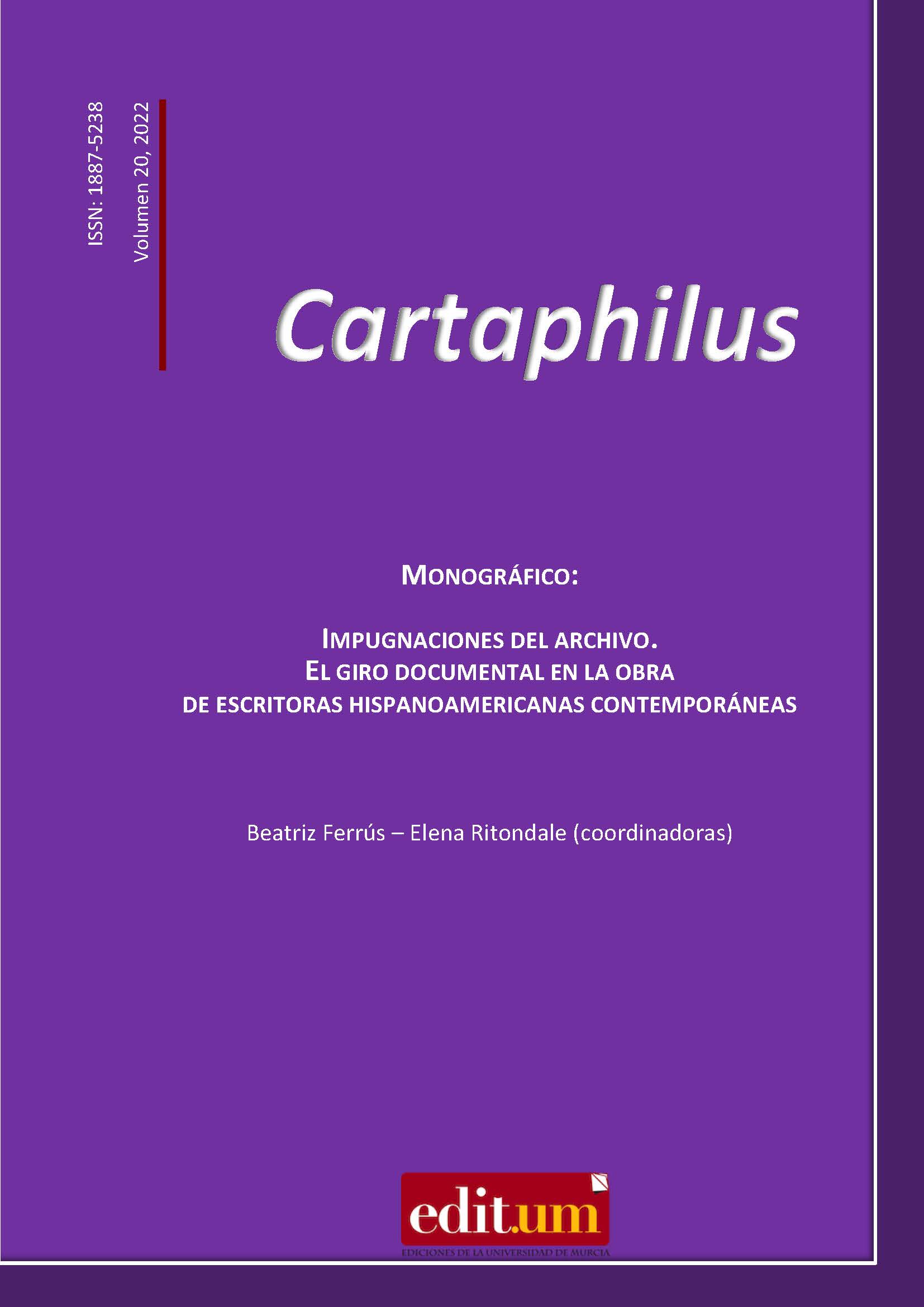The relevance and limitation of photography and sound in "Desierto sonoro" by Valeria Luiselli: a coexistence between archive and repertoire
Abstract
The article presented here aims to illuminate Valeria Luiselli's novel, Desierto sonoro, from a decolonial perspective. This can help us to understand how memory, migration and language are treated in the novel from the confluence of different disciplines such as literature, accustemology and photography. We will try to show, therefore, that it is optimal and possible to think about Luiselli's novel as a political project based on the borderlands: a space of coexistence in which two gnoseologies converge (the western one and the indigenous) with their respective ways of conceiving memory (one based on the archive and the other one on the repertoire). Luiselli attempts to bring a new way of conceiving reality based on community, the recognition of difference and listening, which places his work beyond national boundaries or, in other words, relegates his literary project to the desert space.
Downloads
-
Abstract346
-
PDF (Español (España))592
References
Campillo Meseguer, Antonio (2005): “El extranjero (palabras para Jacques Derrida)”. Daimon: Revista internacional de filosofía. 34, 125-128
Curiel, Ochy (2007): “Crítica poscolonial desde las prácticas del feminismo antirracista”. Nómadas. 26, 93.
Curtius, E.R. (1941): Marcel Proust y Paul Valery. Buenos Aires: Losada.
Deleuze, G. (1984): Francis Bacon. Lógica de la sensación. Colombia: Revista Sé cauto.
Derrida, J. (2000): Of Hospitality. Stanford: Stanford University Press.
Dóñiz Ibáñez, Zyanya (2020): “El archivo encarnado en Lost Children Archive (2019)”, en Lucero, vol. 25, n.º 1, pp. 28-38.
Ette, Ottmar (2018): Filología polilógica. Granada: Universidad de Granada.
Garí Barceló, Bernat (2021): “La escritura en movimiento de Valeria Luiselli: del paseo solitario a la venida del otro”. Mitologías hoy: revista de pensamiento, crítica y estudios literarios latinoamericanos. 23, 103-117.
Luiselli, Valeria (2016): Los niños perdidos (un ensayo en cuarenta preguntas). Madrid, Sexto Piso.
Luiselli , Valeria (2019): Desierto sonoro. Madrid, Sexto Piso.
Martín Gaite, Carmen (2000): La búsqueda de interlocutor. Barcelona: Anagrama.
Meyer, Lily (2019): “Archive, Archive, Archive: Valeria Luiselli on Reading in Order to Write, en Longreads. Consultado en https://longreads.com/2019/02/ 12/interview-with-valeria-luiselli/ (14/11/2022):
Mignolo, Walter (2003): Historias locales/diseños globales. Colonialidad, conocimientos subalternos y pensamiento fronterizo. Madrid: Akal
Mignolo, Walter (2008): “El pensamiento des-colonial, desprendimiento y apertura”. Telar: Revista del Instituto interdisciplinario de Estudios Latinoamericanos. 6.
Rama, Ángel (1998). La ciudad letrada. Montevideo: Arca.
Rivera Cusicanqui, Silvia (2010): Ch’ixinakax utxiwa. Una reflexión sobre prácticas y discursos descolonizadores. Buenos Aires: Ed. Tinta Limón.
Roche Rodríguez, M. (2022): “Entrevista. Valeria Luiselli” en Cuadernos hispanoamericanos. Consultado en https://cuadernoshispanoamericanos.com/valeria- luiselli/ (14/11/2022).
Taylor, Diana (2015): El archivo y el repertorio: el cuerpo y la memoria cultural en las Américas. Santiago de Chile: Ediciones Universidad Alberto Hurtado.
Volpi, Jorge (2011): Leer la mente. El cerebro y el arte de la ficción. Madrid: Alfaguara.
Zapata, Claudia (2018): "El giro decolonial. Consideraciones criticas desde America Latina". Pléyade (Santiago), 21, pp. 49-71.
Copyright (c) 2023 Olivia Magaña Andaluz

This work is licensed under a Creative Commons Attribution-NonCommercial-NoDerivatives 4.0 International License.
Works published in this journal are subject to the following terms:
1. The Servicio de Publicaciones of the University of Murcia (the publisher) reserves the copyright of the published works and encourages and allows their reuse under the usage licence indicated in point
© Servicio de Publicaciones, Universidad de Murcia, 2015
2. Works are published in the electronic edition of the journal under a Creative Commons Reconocimiento-NoComercial-SinObraDerivada 4.0 International licence (legal text). They may be copied, used, disseminated, transmitted and publicly displayed, on condition that: i) the author and original source of the publication are cited (journal, publisher and URL of the work); ii) the material is not used for commercial purposes; iii) the existence and specifications of this licence for use are mentioned.

3. Self-archiving conditions We allow and encourage authors to electronically disseminate the preprint versions (the pre-review version) and/or post print (the version that has been reviewed and accepted for publication) of their works before they are published as this encourages earlier circulation and dissemination and so a potential increase in their citation and impact in the academic community.




